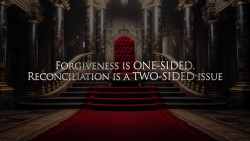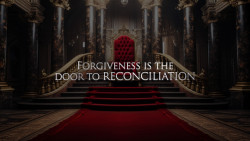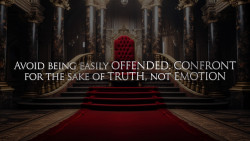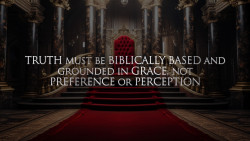The Kingdom - Part 10
Sunday message.
Have you ever felt trapped by unforgiveness, wondering if there's a way forward? Pastor Jamie takes us deep into the transformative power of forgiveness with practical guidance for those struggling with past hurts while pointing to Jesus' ultimate example of forgiveness on the cross.
MP3 Audio
MP3 Transcript
View an A.I. generated full transcript of the audio.
It excites me. Randy pointed this out that today is some of the Toccoa Falls move in slots. And I just thought church family, we need to take a moment and let them know how much we appreciate them coming and hanging out with us, checking the church out. And hey, we just want you to know we love you and we're looking forward to getting to know you and how we can serve you. And next Sunday we're going to take some opportunities in our service to talk about the different opportunities that we have, especially since you came and visited today at 9am our cars group that's led by Will Lowe, Will and Ashley.
There's Will over there. So if you guys have questions, he's over there and I know he wouldn't mind you coming and asking him what's going on and then talk about our gathering. Just so many good things. I'm just going to go ahead and forewarn you. I've got more notes than I can ever get through today.
I have four goals. My goal is number one, to go back and pick up from last week because there was so much more I could say and I felt like the Lord dealt with me this week. And so I'm going to give you what I call footnotes on forgiveness. So if you've got your study guide or you're taking notes in a notebook, just know that's where we're going to jump in. I mean, I'm talking about we're going into the deep end very quick.
When that's over, if there's time, I'm going to pick up the parable that I intended to cover this week. But I'm going to be honest with you. If I don't get there, I don't get there. And so I'll give you the last bullet point for those that like to make sure you got all the blanks filled in. But as you can see, today we're here to worship and to reflect.
And it doesn't matter if we're discussing forgiveness, discipleship, Bible study, church attendance, serving in church, connecting. Whatever we talk about, if it's not under the lordship of Jesus Christ, it's meaningless.
Is Jesus Lord of your life? I heard Lorraine Livingston, he's a church God pastor up, I think in North Carolina, somewhere in the Carolinas. I heard him this week talking about that the issue in our life is is Jesus the Lord of your life, who is in authority? So if I don't get to the parable, you can go back and read it. And if you read it and can't walk away with the same thing, that the landowner had a vineyard and he's growing grapes and he expects a return.
But the ones tending the vineyard which was representative of Israel, isn't giving his return. So he sends men, the prophets, to speak to them and they reject them. Then he sends his own son and what do they do to the son of the landowner? They kill him. And so he asks them, what would you do?
And they said, well, we'd fire those servants and punish them. And he said, and that's exactly what's going to happen. The king was being taken from you because you haven't stewarded what God intended. And the king has shown up and you won't submit to his authority. So when we talk about something like forgiveness, like we did last week, and some of you had some.
I'm telling you some great questions about forgiveness. If Jesus isn't Lord of your life, forgiveness isn't an issue because you'll live in unforgiveness, because you have nothing to motivate you to ever want to forgive somebody. So I'm just saying that here's the context of my message before I get into the weeds in a minute, because as I'm walking through these weeds, I want you to hear the heart of a shepherd and a pastor who does not want you to stay confined, trapped and imprisoned because you haven't gotten to that place where you've embraced the grace behind forgiveness. In fact, a couple of the questions that were asked me and I've rephrased them just to save face. But can I forgive somebody if I can't make up in the relationship?
Can I forgive somebody and not reconcile? Well, let me say this. First of all, I believe God is calling us to be peacemakers. I believe that the door is open for us to reconcile. But here's the problem.
Forgiveness, this is point one, by the way, if you want to go ahead and fill it in. Forgiveness is one sided.
I choose to forgive out obedience to the Lord and the command of God and the grace and the love that he's given unto me. So forgiveness is an issue between God and me first as I extend it out horizontally to somebody else. Reconciliation, though, it takes both sides. It takes both sides. If a relationship is going to be mended, I don't believe it can start unless forgiveness is offered.
But to reconcile with somebody, you guys know it and I know it. You've got people in your life, you have done everything under the face of the sun to try to reconcile with somebody else, and they still will not let you in. Romans 12:18 says that whatever hinges on you depends on you. Be at peace with all men. But there's just some people that will not reciprocate that peace back to you.
And so forgiveness is a one sided issue. Reconciliation is a two sided issue. In Acts chapter 15, after the Jerusalem council, Paul and Barnabas are getting ready to go on their second missionary journey. Well, back in the first missionary journey, there was a man by the name of John Mark who was with them and he deserted and went back to Jerusalem. We don't know why he left, but whatever it was, Paul didn't have a lot of trust in John Mark at that time.
And the Bible says that there arose a sharp division between Paul and Barnabas over John Mark going on the second trip. Now, I don't know how you read your Bible, but a sharp division means that they could never come to a resolution. And you know what happened? Paul went one way and Barnabas went another way and we never hear of Barnabas again. Now here's the good news.
Whatever Paul had against John Mark, they kissed and made up somewhere along the line. Because at the end of second Timothy, as Paul is on death row, he tells Timothy, bring John Mark to me, for he's useful to me. You see, if in your heart you remember last week we talked about how you might draw a line. I can forgive these things and not forgive these things. I think there comes a point where you decide there are some opportunities to reconcile.
But let me speak frank to you. Some of you asked, well, what about that family member who abused me for years and years and years? Do I let them back in my life? And I'm going to be here to tell you, no, you're thinking, whoa, wait a minute, you just said I needed to reconcile. Well, wait a minute.
Reconciliation comes when we set appropriate boundaries. Set appropriate boundaries. Let me tell you why. If you don't set appropriate boundaries with those who continually sin against you over the same thing, you're actually empowering them to keep doing the same thing to you over and over and over again. If somebody robs you, let me give you an example.
Because this I'm pretty convinced if you look up family in the dictionary, mine is the subset of dysfunctional.
If you have somebody in your family who comes to your house and they keep taking money out of your wallet and you catch them and they say, well, I'm sorry, I won't do it again, and you let them back in your house and they take money from you again, that's called Robbery, right? Yes or no? Yes or no? Say it.
Don't let them in your house. Well, I gave them a key because they might need to come get some bread and milk. If they're robbing you, change your locks.
Some of you have been physically, sexually and emotionally abused. You. You can choose to forgive that person in your life, and you need to stay as far away from them as you can get until they come to a place of forgiveness and repentance before the Lord. But don't let them back in your house to do the same thing they've done to you before, because I'm here. Listen to me.
If somebody has abused you and broke the law, they need to be in jail. Well, that's not very loving, Pastor. No, it is very loving because you have been abused and you need to be away from the abuse. So if you're joining me online, and I hope you are, and if you're in this room and you are currently being abused, you need to get help now, don't you? Wait.
You come find one of these pastors up here, and if your life is in danger, we will help you get out of that situation. Don't keep going back, because all you're doing is giving them permission to. To do the same thing to you over and over again. Jesus said forgive them 490 times, but he said don't. He didn't say just keep going and letting them use you like a rug and wiping their feet on you.
I didn't get many amens out of that. But you know, I'm speaking the truth. In your relationships, you need to set appropriate boundaries. It could be something simple like this, that every time you're with a family member, they have a tendency to yell at you and cuss you out.
What if? Why not? Did you look at him and say, you know what? I will converse with you over this problem, but the moment that you raise your voice and cuss, I walk away.
That's a boundary, is it not? But who has to execute the boundary? You do. You do. You set boundaries all in your life.
Not to pick on Laura, but this did happen to us after we got married, where we lived, in our apartment. Laura didn't have a habit of locking her doors. I mean, she just didn't lock her doors. I grew up, you know, south toward Atlanta, and we locked our doors. Somebody broke into her car.
They took her wallet and they took her radio and all these other things. I didn't have to convince Laura after that to lock her door. When someone has offended you or sinned against you. And you don't set an appropriate boundary. Don't be fooled when they do it to you again.
That takes you stepping back from the emotion of the situation and being willing to say, you know what? I've got to do something about this, because you know what? I don't want to be broken in the relationship with you, but if we can't occupy the same place without you cussing me out, then maybe we shouldn't occupy the same place. Now you're sitting here thinking, you know, that's some hard stuff. You.
You don't understand what I've been through. Well, let me tell you the story about a lady by the name of Corrie Ten Boom. Some of you have heard that name, have you not? Corrie Ten Boom lived in Holland, and her family and her were Christians, and they were helping Jews escape from the Nazis. And they were arrested and thrown into a concentration camp.
Her sister Betsy, along with her, as her own story reports, were paraded naked in front of the guards. They were beaten, they were abused, they were raped. Corrie watched her sister die in that concentration camp. World War II ended, and a lot of us think about it from the American side of the table. But can you imagine being a German post war, Your land ravaged because of years of battles.
And Corrie Ten Boone began to go and speak in churches in that area. And in 1947, she found herself in Munich speaking one night about the forgiveness of God. And she said to them in that room, as she was thinking about the seaside in Holland, she said, when we confess our sins, she said, God casts them into the deepest ocean. Gone forever. Not forgotten, but gone.
And she said, as these solemn faces stared back to me, not quite wanting to believe they had been hurt. They had been abused themselves by their government and by years of war. She said there were never questions. After a talk about forgiveness from the Germans in 1947, you know what they did? They got up and they left.
Disappointment and hurt and pain. They imprisoned themselves in their own grief. And she said, the people stood up after that talk and they left. Except, she said, that's when I saw him walking. One moment I saw in front of me the man in the overcoat and the brown hat.
But then I recognized him. And I saw a blue uniform with a visor cap and the skull and the crossbones. And he came back as a rush. The room with its harsh overlight heads and the pathetic pile of dresses and shoes in the center of the floor. The shame of walking past this man naked, this was one of the guards from that camp.
I think that needs to sit and just kind of marinate for a moment.
Even today, if you walked in this room and you said, you don't know how hard I have it. Can I ask you to write down the name of Isaac and Andy Woodward in your study notes? Isaac and Andy are our church planting partners in New Orleans. And she went into premature labor on Friday and she birthed their child at 22 weeks. And he's fighting for his life.
So whatever you came into this room today, can you think about Isaac and Andy as they're down there in that hospital wondering if their baby's going? Because I can tell you, when you begin to put things in perspective from truth, not emotion, it seems a whole lot different, don't it? So here she was, standing face to face now because he had begun to work his way against the flow of the crowd. And he said, you mentioned Ravensbrook in your talk. He was saying, I was actually a guard there.
And she wrote, no, he didn't remember me, she said, but since that time, I have become a Christian. And I know that God has forgiven me for the cruel things that I did there. Very cruel things. Right. But I would love to hear it from your lips as well.
Fraulein, Will you forgive me? Now I want you to hear the words of Corrie 10 Boone, she said as I stood there. I who sinned has every day to be forgiven, just like you and me, she said, But I couldn't. Betsy had died in that place, and I could not erase her slow and terrible death simply because he extended his hand and asked.
It seems like many seconds that he stood there, hands stretched out. But to me it seemed like hours as I wrestled with the most difficult thing that I could do. Much like the mother from the story last week, Megan, as she stood there looking at the 24 year old man named Eric who had taken the life of her child because of a dui.
She said. But I knew I had to do it. I knew that the message that God forgives us has a prior condition that we forgive those who have injured us. If you don't forgive men of their trespasses, neither will your father forgive your trespasses. I knew it was not only as a commandment, but a daily experience.
I stood there with the coldness clutching my heart. But forgiveness is not an emotion. Did you catch that? Forgiveness is not an emotion. It's taking captive my will and choosing to do it.
And she did so. She prayed silently, jesus, help me. I can lift my hand. I can do that much. Her heart wasn't in alignment yet, but she said, I can at least reach out my hand.
And so, woodenly, mechanically, I thrust my hand to his, stretched out to me. And as I did, something incredible took place. The current started from my shoulder and raced down my arm and sprang into our joined hands. Then I felt the healing wart flood my being, bringing tears to my eyes. She said, I forgive you, brother.
I forgive you with all of my heart. For a long time, she said, we grasped each other's hand, the former guard and the former prisoner. She said I had never known God's love so intensely as I did that moment, because at that moment she stopped being a prisoner.
I'm pretty convinced she probably didn't ask him over for supper because that would be unwise.
But had she never forgiven? Had she never forgiven, it would even opened up the doorway to reconciliation. You know, the reason why some of you in this room have never reconciled with family members and friends? Because you've never chosen to forgive them. So you get to the reconciling table and, and you start throwing all the trash that they've ever done to you.
And you have already sabotaged the process of reconciliation before it began. If I hold my offenses against my brother or I bring them up to them, I've already undone what I'm trying to do. Or as some of us, I wouldn't even say innocently, do you have issues with somebody else and you know, you work with them or you share a bathroom with them at home and you get on Facebook and say, well, you know, the other day I was with them and you wouldn't believe what they did to me. I can't believe that they would do that to me. And you air it out on Facebook, but then you expect to sit at a table and reconcile.
Listen in your emotions. The Bible says, be angry, but don't sin. A lot of times you get offended, but then you sin ten times because of the one offense and you sabotage any opportunity for reconciliation. See, I'm telling you, it's one sided to forgive, it's two sided to restore. Now I've given you a lot, a lot of Bible verses in there and I'm so thankful we're in a church that, you know, go home and read it.
You may catch a phrase that I say today and go, you know, I don't know that I agree with that. That's okay. But go to scripture and search scripture to either refute it or, or to come in line with it. You see as we set appropriate boundaries, we protect ourselves. 2nd Thessalonians 3.
6 says, now we command you, brethren, in the name of our Lord Jesus Christ, that you keep away from every brother who leads an unruly life, whether they've offended you or they've not offended you. If you hang out with unruly people, you will become unruly. When you play the game of the world and harbor bitterness and anger and unforgiveness, guess what you begin to do? You begin to harbor those same things. And that's not the love of God.
I told you last week, and I say it again, forgiveness is not easy. I don't believe we have the physical power to do it, but Jesus Christ of the Holy Spirit can empower you with divine power to be able to do it. That's why we have to draw and remember his mercy and his grace, so that we can. Henry McLeod, who co wrote the book Boundaries, said, when we begin to set boundaries with the people that we love, a really hard thing happens. It hurts.
They hurt because your boundary is necessary for you and it's helpful for them. If you've been enabling them to be irresponsible, your limit may actually nudge them to be more responsible. You know, in a perfect world, if somebody offends you, the greatest thing they could do is come and say, I'm sorry. Right? And some of you have decided, well, until they say they're sorry, I'm not going to forgive them.
You've got to remove that prerequisite. You can forgive without the apology.
But I would argue that you can't reconcile without one. But that goes both ways. It goes both ways. You have to have in your heart, like, why would I even want to forgive somebody else? Look at the third one there.
Forgiveness is the door to reconciliation. It is. That story in 2nd Corinthians 2. 5 is where Paul's talking about the man who had sinned, most likely the man who was sleeping with his stepmother. And he says, wait a minute.
You've pushed him too far. It's time to bring him back. It's time to reconcile. But here's what I would know to be true. If that man was coming into my church, I wouldn't let him be in a room with a woman by himself.
Why? Because he's already done something that has shown that if he's put in the wrong situation, he's going to act in his flesh. Right? Are y' all tracking with me? Like, that's what boundaries do.
But if forgiveness doesn't lead the way, reconciliation will never take place. It will never take place, and I do believe. And we'll get to this passage in just a little bit. Second Corinthians 5, 18 and on says that we have been reconciled to God. Therefore, as ambassadors of Christ, what are we preaching?
Reconciliation. We preach to you that you can have a personal relationship with Jesus Christ. Right?
Yes or no? Well, how can I preach the gospel if I'm unwilling to reconcile with anybody around me? You know, that's why Jesus said in John 13:34, 35, a new commandment I give to you to love one another. Just as I have loved you, so also you love one another. Listen, by this, the world will know you are my disciples if you have loved one another.
And if we can't practice the love of God in here that forgives and seeks reconciliation, how in the world can we ever tell the world about a Jesus who died on the cross, paid the price for their sin so he could reconcile with them? He did all the work. And if you think you offer any work back to God that's going to save you, you're wrong. Jesus met you at your point of need, and he met you at your point of brokenness, and he met you at your place of ignorance. Aren't you thankful that he found you?
And if he did, then why aren't we seeking to find other people at their point of brokenness and their point of pain and their point of disappointment?
My friend Jim Holmes, who pastors over at Hell and First Baptist, the first Sunday I ever heard him preach, he said, if somebody gets to hell, they'll do it walking over my body. Are we that desperate to preach the gospel that we'd be willing to say the same to others? I got to pick up my pace. Point number four, avoid being so easily offended. Just let that one marinate.
Some of you would get offended if somebody looked at you wrong. Your offense has nothing to do with truth. It has to do with your emotion. Stop it. You are not living in grace if you get offended over every little single thing somebody does or doesn't do to you.
Anybody guilty of that? Don't raise your hands. We're all guilty of that because the problem is our emotions. Our heart is desperately sick and wicked. Who can trust it?
But we do. We trust our emotions of a situation, and that's what culture is promoting. Culture's infiltrating us more than we realize we need to confront for the sake of truth and not for the sake of emotion. And really, I guess, out of that, my favorite verse is Ecclesiastes 7:9, where Solomon says this, Listen to me, I'm saying this in loving confrontation to you and even to myself. Do not be eager in your heart to be angry, for anger resides in the bosom of fools.
John Wesley said, people who wish to be offended will always find some occasion to find offense. Maybe the reason you haven't reconciled with other people is because you haven't dealt with the unresolved anger in your own heart and you're just ticked off at everybody that comes into your path.
Maybe if you flip that over and said, you know what? I'm going to be a grace filled person. I'm going to start looking at it from a different perspective, that if somebody doesn't speak to me, you know what, maybe there's something going on, maybe they're distracted, maybe they forgot, maybe they went a different direction. Laura and I used to joke because it drives me nuts for somebody to ride my bumper. Y' all know my pilot is starting to lose pain on the top now.
Don't ride my bumper. It drives me crazy. But years ago, Laura said, well, maybe they're on their way to a funeral. And I just, I never. Or maybe even to the hospital.
I just never forgot. You know what? There's some reason they're in a hurry and they definitely aren't making it personal because they don't know who I am, so why worry about it If I want to cruise, pull off, let them around, you know, I wouldn't pull off little Remy because I'm prideful who they think they are. Do they know who I am? By golly, you know what?
I'm going to go down to 40 in this 45. I'll show them who I am. And then they ride your bumper more because maybe they are on their way to the hospital. Maybe they are, maybe a crisis, maybe they're lost. And the way you're acting would point them away from Jesus rather than to him.
And so we need to be people who are avoiding being easily offended. But the second one goes along with it. Truth. Because you need to confront with truth. You don't need to be confronted.
Well, you know what I felt like, well, that's great to tell somebody how you feel, but if that feeling has no basis of truth, then you're not confronting them biblically. Because watch this Matthew, chapter 5. If you have been offended, if you know that your brother has offense against you, lay down your offering, go make it right with your brother and come back. Flip side of that is Matthew 18. He says, if your brother sins, he didn't say sin against you, said he sinned based on the word of God.
Based on God, not you, not your perception of it, not your preference of it, but both sides puts a responsibility on the offended and the offender. And if I'm doing it correctly, if I'm going to confront somebody, I can't confront them on how it made me feel. I've got to confront them based on truth and not my truth. It must be the God's truth. It must be from Scripture, because if I confront them, I'm going to make it even worse.
And again, it goes back to being easily offended. Like, what is it actually that's being offended? If somebody robs from you, the confrontation is, it's wrong to steal. And the more you steal, it's putting a wedge between your relationship and mine. Please stop.
Every time you speak shameful to me, and there are some people in your lives that do that. If you're going to shame me when you speak to me, then we won't speak.
Set an appropriate boundary. But why? Because the Bible says that your speech be seasoned with what? Anybody know that verse? Somebody said it.
Say it louder. It's love. It's grace. Your speech to be seasoned with grace. Not with the poison of shame and guilt.
Because you know what that leads to? Manipulation.
Y' all tracking with me, aren't you? I've had a lot of time this week to think about this. Let me go to the last two so we can share communion. Be a peacemaker. Romans 12:18 says that whatever hinges on you, be at peace with all men.
The verse before that says, if somebody gives you evil, don't give them evil back. And the next verse talks about how if we're going to leave room for the judgment of God, that we're not trying to give them evil, we're actually doing the opposite. You need to give them good. If somebody's doing something towards you, you should do good. But if they're repeatedly doing the same thing over and over and over again, it's about time you set a boundary to protect you and protect them.
But be a peacemaker. Let me just give a caveat, because some of you are dealing with some things that are really messy. I believe so much in good counseling, good biblical counseling. Whether that's the pastoral counseling that I can provide or whether that's some of the counselors we have in our church, or whether that's to make a referral. Why?
Because it's important and vital to your discipleship. If you're strapped by the sin of unforgiveness. You can never live out the gospel because you can't tell somebody about a God who forgives if you can't.
And going with that. In fact, if you look at Proverbs 17, 14, it talks about strife is like letting water out of a broken dam just burst and just gushes. That's how some of us are emotionally, we just blah. But if I can step back, ask myself the question, what is it I'm offended over? What's the truth in this?
And apply that, because the last one says this. Suspend judgment, give grace. Romans 2, 3, 4. It says, but do you suppose, oh man, when you pass judgment on those who practice such things and do the same thing yourself, that you will escape judgment? In other words, he's saying, equally apply the principle, because if you're going to call somebody else out and treat them badly because they've treated you badly, then you've got to remember, he says, or do you think so lightly of the riches of his kindness and his tolerance and patience, knowing that it was the kindness of God that led you to repentance?
Think about this. What went through Corrie, thinking of her sister, thinking of the setting in that camp, fully disgraced and abused. It took everything in her to take that man's hand and say, I forgive you, brother, with tears, and says, I forgive you with all of my heart. If you want to know God's love intensely, be a forgiving person. If you want to know God's gospel, be a reconciling person.
So like I said, that parable, when you read it, if you want to read it this week, I'd love to invite you to read it. It's the parable set between the one of the two sons and the banquet feast. I preached the first one, Fred preached the last one. But it was all in response to the religious leaders questioning the authority of Jesus. Whatever the issue is in your life, it is an issue of authority.
And so when Jesus sat down with his disciples that night, just days later, after this scene, and he began to take that bread and he began to break it, he said, this is my body which is broken for you. And they're going, whoa, whoa, whoa, whoa, wait a minute. Jesus, you're the king, you're the Messiah, you're the anointed one. Like, why would you break your body? Because that's how far Jesus went for you to be able to come to him.
And he told him to take that cup and to drink that juice as a marking of the new Covenant and said that in my blood is the forgiveness of sin. In the new covenant, what greater way can we say I'm submitting to the lordship of Jesus Christ than the taking of communion? So I'm going to ask our deacons to come and go ahead and get in their places. And here's what I want to ask you to do. I'm going to flip over here to my other notes.
Y' all better be glad the printer worked this morning.
Paul, in 1 Corinthians 11, he talks about communion and he says, therefore, and he's actually having a reprimand. Corinthians is the church that he had to get onto a lot. But apparently what was going on in the church is they would come to the table, they would come to the sharing of communion, because it's the only place Jesus said, do this in remembrance of me. And so he comes in and he says, all right, here's this, and I want you to do this. And the church was practicing this.
But what was happening is some of the more selfish ones in the church would run up and they'd eat all the bread before somebody else had a chance to worship. They were robbing the worship of somebody else. With that in mind, as we read this text, he says, therefore, whoever eats the bread and drinks the cup of the Lord in an unworthy manner, in a selfish manner, shall be guilty of the blood and the body of the Lord. But a man must examine himself, and in doing so, he is to eat of the bread and drink of the cup. And so today, if you are a born again Christian, if you have been saved, you are invited to this great banquet table.
You're invited to partake. If not, I mean, I don't want you to feel ashamed as the plate passes by, but don't take the bread because he said, some of you are sick. Because you take it unworthily, because you're taking it selfishly. Right now, in just a minute, we're going to begin to hand these elements out. And I want you just to sit there and stare at that piece of bread and confess your sins before the Lord.
He's faithful and just to forgive you, but his blood is what cleanses you from unrighteousness. So before you put that morsel in your mouth, I want you as a born again believer to have a moment with the Lord to say, lord, I'm a sinner. Forgive me of my sin before I ever put this wafer in my mouth. So, guys, if you will, go ahead and distribute the bread to Our family. And again, as you get it, just spend a few moments reflecting about what it means to examine yourself, examine where you are in the faith, examine where you are in your walk with Christ.
Maybe right there, as you're holding that bread. And you may need to rededicate your life to the Lord. Maybe you do need to repent of some sin. Maybe you need to say to the Lord, lord, I just cannot seem to get this sin out of my life. But if there's not the want to, then question yourself.
Did you ever get saved? Did you ever get saved? So, guys, if you will go ahead and begin to distribute that to our people, and we'll just leave this slide. It says this. The kingdom will be given to those who accept the authority of the King.
So as we do this in remembrance of him, yes, we're reflecting on his sacrifice, the very reason that we're saved. But we're saved to be in his kingdom and therefore were under submission of the king. Romans 10:9 says that if we confess with our mouth that Jesus is what Lord? And they believe in our heart that God raised him from the dead, we would be saved. Is Jesus.
Is Jesus the Lord of your life? Because as he was speaking to them that night, he said, for I received from the Lord that which I delivered to you. In other words, Paul, when he was setting and established his church, he taught them to do this. That the night that the Lord was betrayed, he took bread, and when he had given thanks, he broke it and said, this is my body, which is for you. Do this in remembrance of me.
So, church, I want to ask you to take that wafer and eat it in worship of the broken body of God. For he himself said, I am the bread of life. He who comes to me will never hunger. Tame.
Gentlemen, if you would distribute the juice now, at this time.
Now, I kind of stirred up a little pot, telling you that that context was about not waiting on one another. So in verse 33 of First Corinthians 11 says, so then, brethren, when you come together to eat, wait for one another. I love honestly the picture of. Of this right here. As our deacons serve one another, no one takes their cup of their own, but each one is handed to somebody else as that symbol of us thinking of somebody else.
Paul wrote in the same way he took the cup after supper, also saying, this cup is the new covenant in my blood. Do this, and as often as you drink it, do so in remembrance of me. For as often as you eat this bread and drink this cup, you proclaim the Lord's death, even until he comes. This is our proclamation of the gospel. This is our proclamation.
Today in our worship, we lift high the name of Jesus Christ, our king and our Lord. Because of his blood. Because of his blood. Because of his blood. He met you right where you are.
So, Lord, as you take this cup, just say, thank you, Father. You're so good. We thank you for your sacrifice. We thank you for your love. We thank you for your forgiveness.
It's what we've been talking about for the last two weeks. Now, draw us close to yourself. Lead us, direct us, and help us to know how we can go out in the world. And practically, through forgiving others and seeking reconciliation, we can proclaim what it is that we actually have in you. In Jesus name, amen.
More from the The Kingdom Series
- The Kingdom - Part 1 - Kingdom Restoration ... (June 15, 2025)
- The Kingdom - Part 2 - Kingdom Rooted ... (June 22, 2025)
- The Kingdom - Part 3 - Kingdom Reality ... (June 29, 2025)
- The Kingdom - Part 4 - Kingdom Reaching ... (July 6, 2025)
- The Kingdom - Part 5 - Kingdom Responsibility ... (July 13, 2025)
- The Kingdom - Part 6 - Kingdom Reception ... (July 20, 2025)
- The Kingdom - Part 7 - Kingdom Readiness ... (July 27, 2025)
- The Kingdom - Part 8 - Kingdom Riches ... (August 3, 2025)
- The Kingdom - Part 9 - Kingdom Reconciliation ... (August 10, 2025)
- The Kingdom - Part 11 - Kingdom Return ... (August 24, 2025)
Weekly Bulletin









